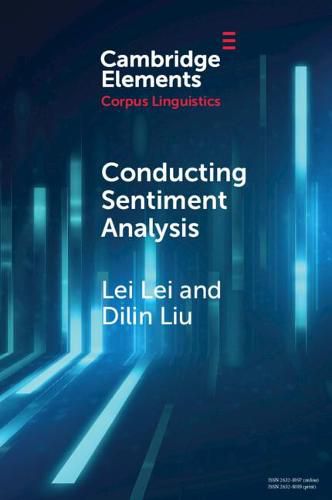Readings Newsletter
Become a Readings Member to make your shopping experience even easier.
Sign in or sign up for free!
You’re not far away from qualifying for FREE standard shipping within Australia
You’ve qualified for FREE standard shipping within Australia
The cart is loading…






This Element provides a basic introduction to sentiment analysis, aimed at helping students and professionals in corpus linguistics to understand what sentiment analysis is, how it is conducted, and where it can be applied. It begins with a definition of sentiment analysis and a discussion of the domains where sentiment analysis is conducted and used the most. Then, it introduces two main methods that are commonly used in sentiment analysis known as supervised machine-learning and unsupervised learning (or lexicon-based) methods, followed by a step-by-step explanation of how to perform sentiment analysis with R. The Element then provides two detailed examples or cases of sentiment and emotion analysis, with one using an unsupervised method and the other using a supervised learning method.
$9.00 standard shipping within Australia
FREE standard shipping within Australia for orders over $100.00
Express & International shipping calculated at checkout
This Element provides a basic introduction to sentiment analysis, aimed at helping students and professionals in corpus linguistics to understand what sentiment analysis is, how it is conducted, and where it can be applied. It begins with a definition of sentiment analysis and a discussion of the domains where sentiment analysis is conducted and used the most. Then, it introduces two main methods that are commonly used in sentiment analysis known as supervised machine-learning and unsupervised learning (or lexicon-based) methods, followed by a step-by-step explanation of how to perform sentiment analysis with R. The Element then provides two detailed examples or cases of sentiment and emotion analysis, with one using an unsupervised method and the other using a supervised learning method.